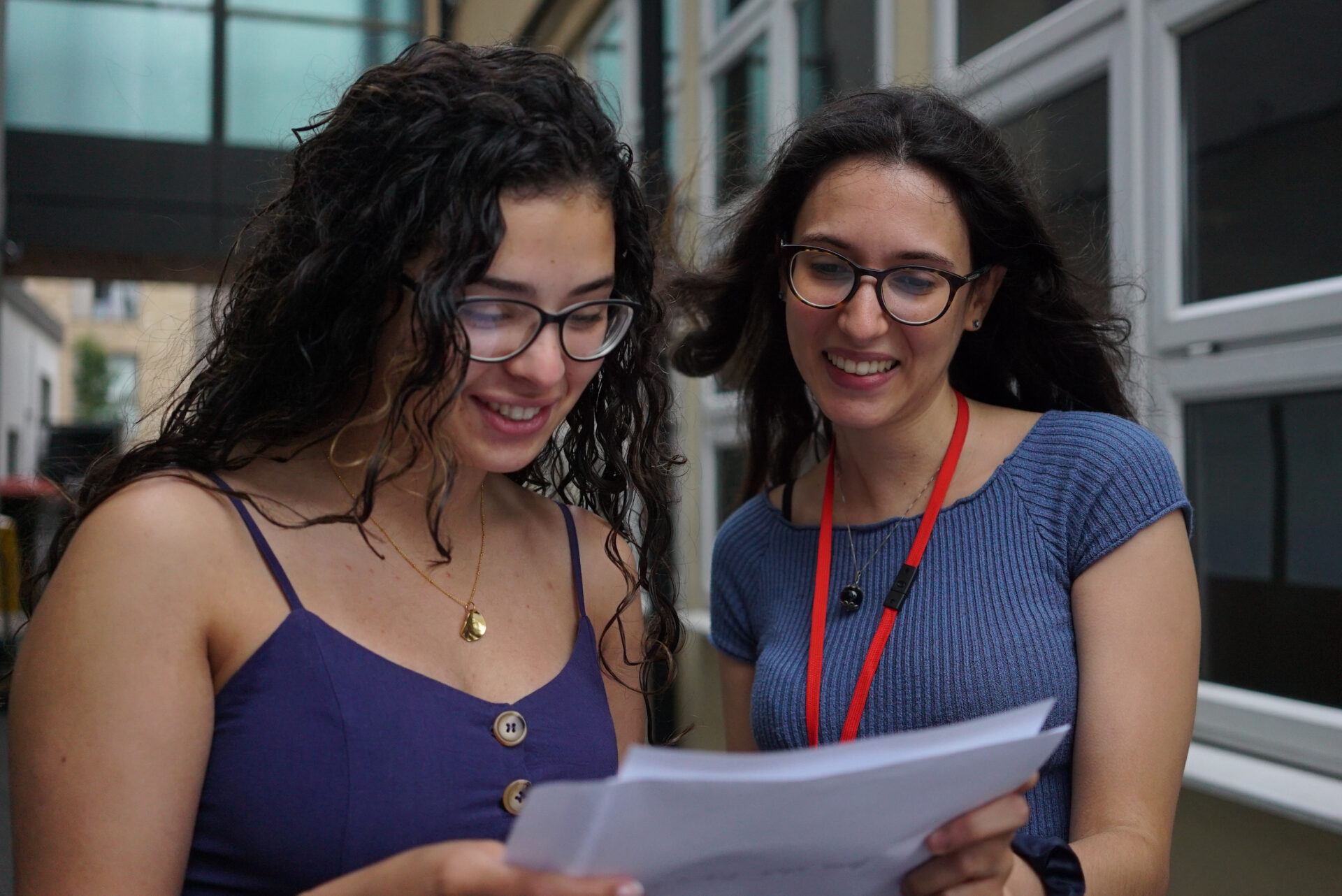About us
The Access Project supports under-resourced young people to access top universities through our unique programme of mentoring, skills coaching, and tuition.

Why we exist
Talent is everywhere, but opportunity is not.
Access to education in the UK is profoundly unequal. According to The Sutton Trust, students from the most under-resourced backgrounds are three times less likely to attend university than their more advantaged peers.
Our vision is to level the playing field and help the country’s most under-resourced young people place at top universities, giving them the best chance at achieving social mobility.
The Access Project is recognised as an industry leader in the education and widening participation field.
- Highly Commended, 2018 CSJ Annual Award for Education, Employment and Skills
- Validated at Level 3 on Nesta’s Standards of Evidence, 2016
Meet our students
Ras.I studied with The Access Project from 2016 – 2019. As a child, he lived below the poverty line. He was homeless and he struggled to afford a school uniform, going to school with holes in his shoes.
With support from The Access Project, Ras.I achieved high grades in his GCSEs and A levels. Now, he’s a finalist at the University of Oxford, and has dreams of becoming Prime Minister. Ras.I wants to transform the lives of young people just like him.
How does it work?
The Access Project was established in 2008 to help talented young people from under-resourced backgrounds gain access to an education at one of the UK’s top universities. Through our unique programme, we support young people to make the most of their education and achieve social mobility.
We work with schools across the country supporting over 2,000 young people aged 14-18 in London, the West Midlands, the East Midlands, Lancashire, and Cumbria to transform their prospects.
Students enrolled on our programme receive expert support from our University Access Officers, mentors embedded in schools to guide pupils through their education options, university applications and student life topics such as navigating student finance.
Our team of volunteers and tutors also provide invaluable support to our students. Our volunteer and group tutors help students raise their grades, while our volunteer coaches help students develop essential skills and prepare them for world of work.
Young people on our programme are 50% more likely to place at a top university compared to statistically similar students.
Meet our team
We’re thrilled to be a people-driven organisation, fuelled by a charity-wide passion to make a difference to the lives of young people.
Key to our mission is our team of dedicated mentors, called University Access Officers. University Access Officers are embedded in schools, working directly with students to help them make the most of their education.
We work one-to-one with students and deliver tailored group workshop sessions, guiding the young people on our programmes through their education journey. Mentorship helps students make decisions about their education choices, develop their university applications, and prepare for life ahead.
83% of our students say that one-to-one meetings with their mentors have improved their independence to pursue academic interests and 92% of our students feel that our workshops have motivated them to attend a top university.

Our impact
Students supported in 40 schools
Hours of tutoring in 2023-2024
of our students come from the most under-resourced backgrounds
of our students received offers from top universities in 2024
Volunteer coaching
Through monthly one-to-one sessions, our volunteer coaches inspire young minds. Coaches work with young people to build essential life skills, such as critical thinking, problem solving, and communication, that they will use at university and beyond.


Volunteer tutoring
Every year, we match hundreds of volunteer tutors with a 14-16-year-old student from one of our partner schools. Through one-hour tutorials each week, they support our students to achieve their full potential at GCSE.
98% of our volunteers feel they are making a positive impact.
“Programmes like The Access Project have repeatedly demonstrated how much difference they make to the students who work with them, in terms of academic outcomes and progression into higher education, tackling poor attainment, and the poor life chances it leads to.“
John Blake, Director of Fair Access and Participation at Office for Students
Subscribe to our newsletter
Contact us
Contact information
The Access Project,
Canopi,
82 Tanner Street,
London,
SE1 3GN
020 4513 5999
info@theaccessproject.org.uk
Media enquiries line: 07767 100582
media@theaccessproject.org.uk
The Access Project safeguarding line: 020 4513 5999 (available Monday to Friday, 9am to 5:30pm)
NSPCC helpline (visit the NSPCC website for up to date opening hours): 0808 800 5000 help@nspcc.org.uk
